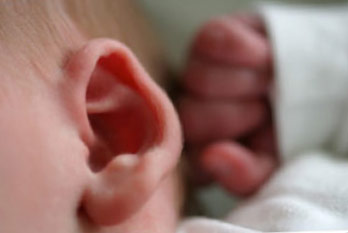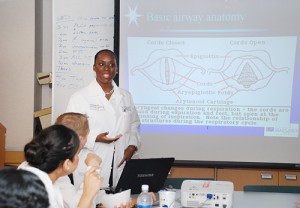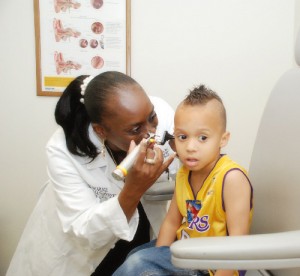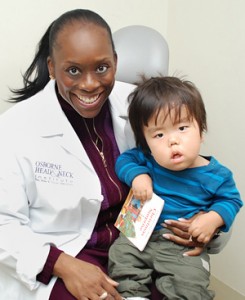- New Sublingual Allergy Tablets - October 31, 2014
- Ground-breaking New Treatment Option for Sleep Apnea - September 27, 2014
- Allergies versus Viruses in Children - September 27, 2014
- “Dog Dust” Protects Children from Allergies - September 27, 2014
- Nasal Saline Irrigation - August 8, 2014
- Doctor, I am Allergic to Dust. What Can I do? - July 31, 2014
- Infants Exposed to Dust Mites Less Likely to Develop Allergies - June 23, 2014
- How to Treat a Young Child’s Cough - December 17, 2013
- Many Parents are Unaware That Their Children Are at Risk for Noise Induced Hearing Loss - December 9, 2013
- Is it a Cold or an Ear Infection? - December 9, 2013
 How can I know if my newborn is able to hear normally?
How can I know if my newborn is able to hear normally?
Question: I gave birth to a healthy, full term girl two weeks ago. I have noticed since then that even if there is a loud noise in the house, she doesn’t startle or wake up. This has me concerned that she may be having difficulty hearing. How do I know if my baby can hear me? Is there a way to test for this?
Discussion:
Hearing loss in newborns is actually very common; it is the most common birth disorder.
Because of this, newborns are now evaluated for hearing loss during their hospital stay, after birth. However, babies born at home or in a birthing center may not have this performed. For these children, it is recommended to have a hearing screen with in the first month of life.
If an infant fails the hearing screen, the infant should be retested within 3 months.
Newborns are at risk for hearing loss if any of the following is present:
- Low birth weight
- Unusual appearing face and/or ears
- Jaundice requiring transfusion
- Being in the Neonatal Intensive Care Unit (NICU) for more than 5 days
- IV antibiotics
- Meningitis
- Family history of early onset hearing loss
It is critical for the newborn with hearing loss to be evaluated by a pediatric otolaryngologist. This specialized ENT doctor is best able to assess the degree of hearing loss. They may also identify other facial and physical features that may suggest a more serious disorder.
Because hearing is so critical for speech development, intervention for hearing loss is recommended by 6 months of age. Early diagnosis and treatment is important for speech, language, cognitive and psychosocial development.
Even if a newborn passes their hearing screen, when parents have any concerns about their infant’s hearing, an evaluation is warranted. Signs of hearing loss are often first noticed by parents or caregivers. These can include:
- Not reacting as expected to loud noises
- Not being awakened by loud noises
- Not turning their head in direction to voice
- Not following basic commands
- Speech delay (not imitating sounds, not babbling)
Hearing loss can be temporary or permanent and there are many contributing possible factors. If you have concerns about your child’s hearing it is important to have them evaluated by a pediatric otolaryngologist. Treatment is most successful when hearing loss is identified early.



